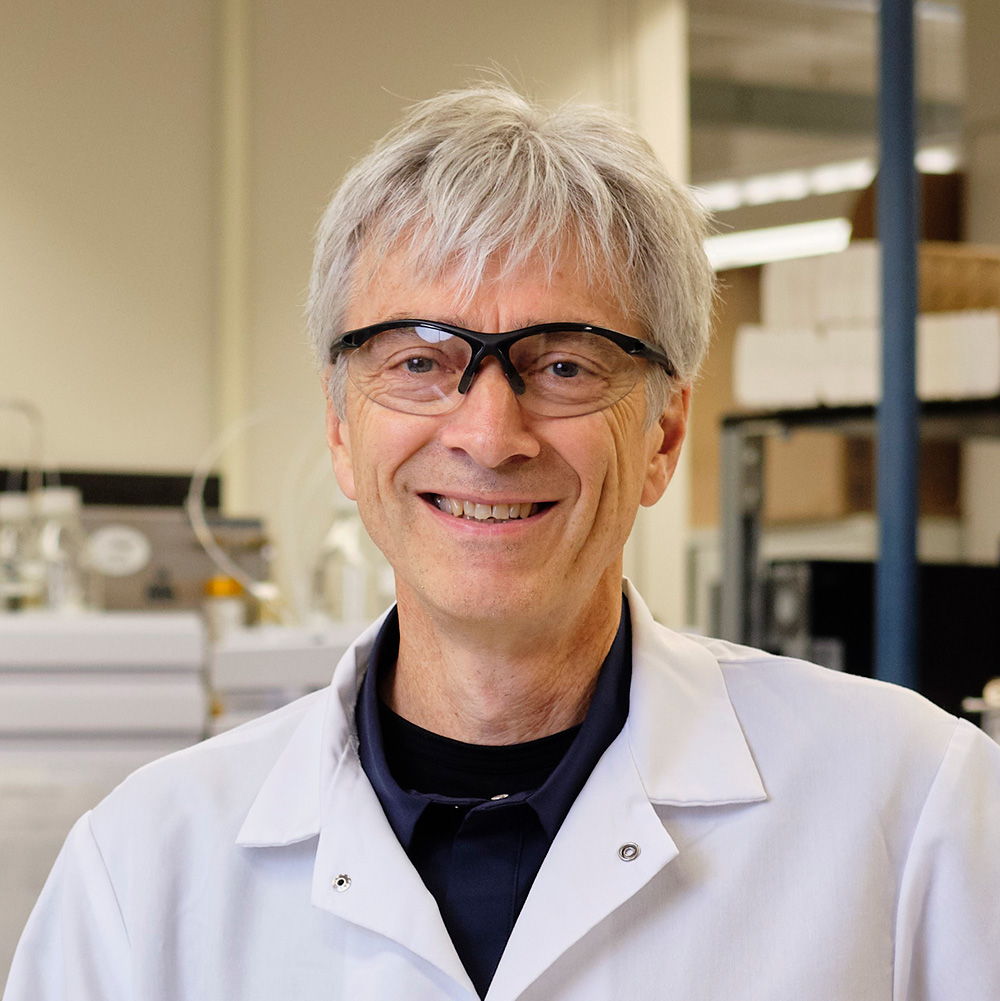Bioinformatics, Genomic, and Quantitative-Based Solutions for Food Security Under a Changing Climate

Accelerating development of climate-ready crops
Cluster Goals
As the world’s population heads toward nine billion, climate change threatens a primary source of humanity’s food—plants. Changing environmental conditions directly and indirectly impact plant health and crop yields. Agriculture must evolve to enable long-term food security at household, national, and global scales.
The cluster’s vision is to enhance food security by proactively developing climate-resilient crops that will stand up to future temperature, drought, salinity, pest, and disease challenges. It aims to accelerate genomics-based breeding of crop plants and intentional development of microbiomes that promote plant growth.
We’re building on the University of Tennessee, Knoxville’s long-standing strengths in fundamental and applied plant sciences, microbiology, mathematics, computational sciences, and public policy by adding breadth and depth in cutting-edge technologies, including machine learning. We intend to weave education and outreach into everything we do to facilitate timely translation of research into real-world solutions applicable in Tennessee and beyond.
Cultivating Ideas
We’re building on our strengths across diverse fields, including:
- Bioinformatics and agricultural informatics
- Data and computational sciences
- Entomology
- Machine learning
- Mathematics
- Microbiology
- Genetic engineering and gene editing
- Genomics
- Plant pathology
- Plant science
- Public policy and outreach
- Quantitative climate change biology
- Soil science
Ready to take the next step?

Why UT?
We’re proud to work on this challenge at a flagship land-grant institution. We will leverage UT Extension connections to take our laboratory solutions into field trials and onto farms across Tennessee. We’ll seek out collaborations with other land-grant universities to translate our discoveries to meet needs across the country.
New cluster hires will join a thriving community of researchers with access to world-class facilities. We actively leverage the Plant Research Center’s interdisciplinary infrastructure as a launchpad for innovative cross-pollination, training, and center-scale proposal development. We will also collaborate with and tap resources from other UT units: the National Institute for Modeling Biological Systems (NIMBioS), the Center for Agricultural Synthetic Biology, AI Tennessee, the UT One Health Initiative, and multiple genomic facilities. UT’s strong relationship with Oak Ridge National Laboratory provides the cluster with additional capabilities, including high throughput plant phenotyping.
Cluster faculty will prepare graduate and undergraduate students for careers on the cutting edge of genomics, machine learning, and data science. From day one, new hires will help promote interdepartmental graduate student training and contributions to joint UT–ORNL programs. Over time, new hires will lead the development of an undergraduate agricultural bioinformatics major.
Join Our Academic Community
Explore the links below to learn more about open positions. Contact the faculty lead if you don’t see an open position aligned with your skill set or if you’re a current UT faculty member who wants to get involved.
Hiring Colleges
Cluster Positions
Filled
Alessandro Occhialini Assistant Professor
Focus: Plant synthetic biology and genome editing
Hiring Unit:
Filled
Marcus Merfa Assistant Professor
Focus: Plant microbiome function
Hiring Unit:
Filled
Gautam Shirsekar Assistant Professor
Focus: Systems genomics and plant-pathogen coevolution in wild systems
Hiring Unit:
Planned
Assistant Professor
Focus: Quantitative climate change biology, terrestrial ecosystems, agroecosystems
Hiring Units:
Planned
Assistant or Associate Professor
Focus: Agroecosystem ecology
Hiring Unit:
Planned
Assistant Professor
Focus: Machine learning in agricultural systems
Hiring Unit:
Meet Our Cluster Community
Faculty Leads

DeWayne Shoemaker
Professor and Head, Department of Entomology and Plant Pathology, Herbert College of Agriculture
Phone: 865-974-7955
Email: dewayne.shoemaker@utk.edu

Heidi Goodrich-Blair
David and Sandra White Professor and Head, Department of Microbiology, College of Arts and Sciences
Phone: 865-974-6358
Email: hgblair@utk.edu

Greg Peterson
Professor, Department of Electrical Engineering and Computer Science, Tickle College of Engineering
Phone: 865-974-6352
Email: gdp@utk.edu

Gary Bates
Professor and Head, Department of Plant Sciences, Herbert College of Agriculture
Phone: 865-974-7324
Email: gbates@utk.edu
Faculty
-

Professor and Head, Biochemistry and Cellular and Molecular Biology
characterizing at the molecular level the strategies used by bacteria to adapt to changes in the environment
-

Charles P. Postelle Distinguished Professor & Associate Head, Biochemistry and Cellular and Molecular Biology
membrane biochemistry related to photosynthesis, specifically chloroplast protein import and applied photosynthesis
-

Assistant Professor, Microbiology
host and environmental microbiomes, microbial community cooperation and competition, modulation of community function
-

Associate Vice Chancellor, Research & Innovation Initiatives and Research Integrity & Assurance
plant, soil, and microbial sciences
-

Professor, Biosystems Engineering and Soil Science
microbial ecology, biodegradation, decomposition
-

Associate Professor, Computer Science
genome-focused bioinformatics, high-throughput and parallel computing, life science applications
-

Associate Professor, Entomology and Plant Pathology
host-pathogen-vector interactions, native tree conservation, preservation of biodiversity in North American forests, global forest and tree health
-

Professor, Plant Sciences
cyst and root-knot nematode effectors and their impacts on plant growth and development; epigenetic regulation of plant response to biotic and abiotic stresses
-

Associate Professor, Biochemistry and Cellular and Molecular Biology
T cell differentiation, epithelial plasticity during development and cancer progression, specialization of motor neurons in early embryos
-

Professor, Entomology and Plant Pathology
bacterial insecticidal protein modes and insect resistance, RNA interference for insecticidal gene silencing and resistance mechanisms, insect gut enzymes for biofuel
-

Professor, Entomology and Plant Pathology
genetic characterization of the extreme plasticity of the oomycete genome during spore production and subsequent survival, spread, and plant infection
-

Goodrich Chair of Excellence in Civil Engineering
biogeochemical processes in soil, sediment, subsurface and water environments
-

Assistant Professor, Plant Sciences
plant synthetic biology, metabolic engineering of plants
-

Assistant Professor, Entomology and Plant Pathology
plant-pathogen-microbe interactions in agriculture, genetics/genomics of plants
-

Professor & Assistant Department Head, Entomology and Plant Pathology
pathosystems involving soilborne plant pathogens
-

Gonzalez Family Professor, Computer Science
image processing, computer vision and machine learning; collaborative information processing in sensor networks
-

Professor and Department Head, Ecology & Evolutionary Biology
community genetics, plant-soil interactions
-

Associate Professor, Plant Sciences
crop physiology with a focus on plant water saving potential; environmental effects on plant water movement, leaves stomata conductance, transpiration response
-

Assistant Professor, Entomology and Plant Pathology
plant pathology, phytopathology
-

Professor, Biochemistry and Cellular and Molecular Biology
regulation of cell-to-cell communications mediated by the ERECTA family of genes
-

Associate Professor, Entomology and Plant Pathology
bioinformatics and computational genomics
-

Professor, Biochemistry and Cellular and Molecular Biology & UT-ORNL Graduate School of Genome Science and Technology
regulation of protein synthesis (mRNA translation)


